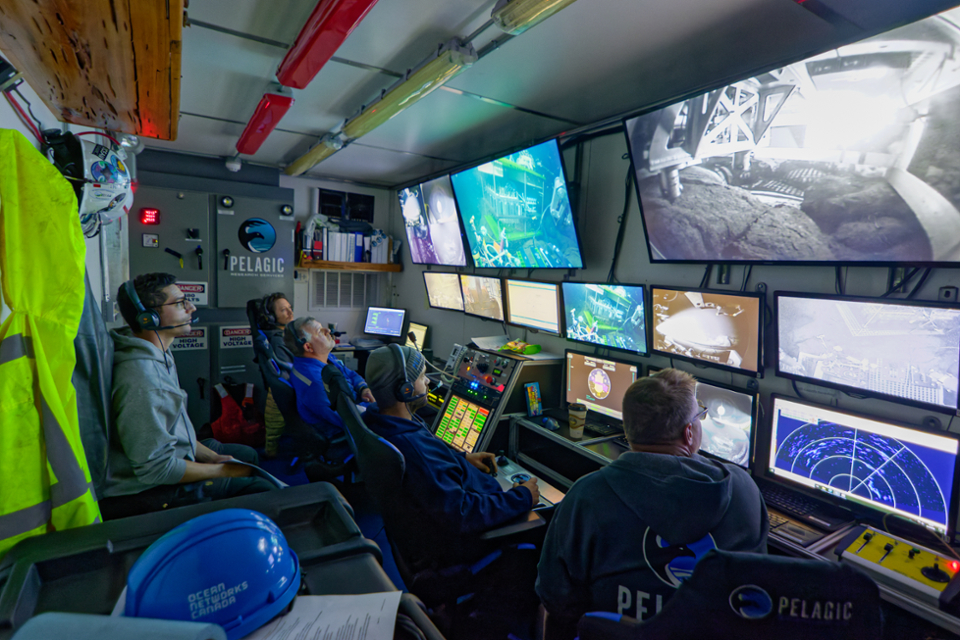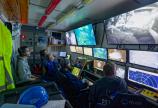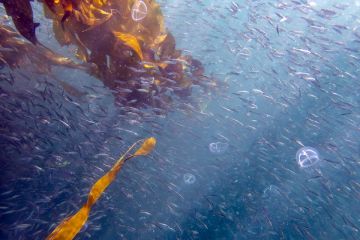Advancing Canada’s science and innovation for ocean protection

Canada’s advancement of ocean science and innovation continues to go from strength-to-strength with the expansion of Ocean Networks Canada’s world-leading deep sea and coastal ocean observatories and partnerships.
Ocean Networks Canada (ONC), an initiative of the University of Victoria (UVic), operates observatories in the deep ocean, coastal waters, and land of the Pacific, Atlantic, and Arctic coasts of Canada, delivering continuous, real-time, and archived open-access ocean data.
Today, the Minister of Fisheries, Oceans and the Canadian Coast Guard, the Honourable Joyce Murray, announced $46.5 million in funding over five years to UVic’s ONC through Canada’s Oceans Protection Plan in a media briefing at the Fifth International Marine Protected Areas Congress IMPAC5 in Vancouver.
This investment supports ONC’s network of cabled, mobile, and community-led observatories that collect data to monitor changes, including climate impacts and underwater noise on all three coasts. It also supports oceanographic radar and ocean buoy monitoring efforts that provide real-time information on wave and surface currents that help monitor ocean conditions and prepare for extreme events.
ONC President and Chief Executive Officer Kate Moran says Ocean Networks Canada is committed to supporting Canada’s Oceans Protection Plan.
“Our culture of innovation and partnership brings together scientific research and Indigenous knowledge to advance the goals of the Plan and deliver the tools needed to tackle the biggest challenge today in the ocean and on the planet—climate change.”
Stories of impact
Speaking at IMPAC5, Moran shared new research from UVic that shows how climate change impacts on an individual species is affecting ecosystems in the northeast Pacific Ocean offshore Vancouver Island.
“Up to 14 years of combined physicochemical and video imagery data from ONC’s deep sea observatories and Fisheries and Oceans Canada (DFO) trawls shows that fragile pink sea urchins moved up to 49 vertical metres during the Blob marine heat wave, as food sources and oxygen levels declined at lower depths,” she says.
“Having this technology to identify behaviour changes that can have significant marine impacts makes possible evidence-based decision-making in the face of an unprecedented rate of change in the Earth’s climate.”
— Kate Moran, ONC President and Chief Executive Officer
Moran says ONC’s commitment to a sustainable ocean future also rests at the community level through supporting a growing network of Indigenous and coastal community-led observatories on the three coastlines of Canada, plus an ocean-science outreach program co-developed with Indigenous partners.
ONC recently co-authored a PLOS Biology perspectives article that identifies a path forward for pursuing genuine ocean science partnerships, “Two-eyed seeing: Embracing the power of Indigenous knowledge for a healthy and sustainable ocean.” Read the story here.
Today’s funding announcement will also support the extension of ONC’s coastal data for maritime and incident response into the Arctic and into coastal Indigenous emergency response management.
Separate from the Ocean Protections Plan, ONC’s NEPTUNE observatory offshore Vancouver Island also supports coastal resilience and community safety by powering the deep-sea section of ONC’s earthquake early warning seismic network. A recent earthquake off Tofino showed the value of the system, providing 43 seconds of notification to infrastructure operators in Victoria and Vancouver before ground-shaking arrived. Read the story here.
Canadians can be proud of their national ocean observatory which provides an open-source data portal for researchers to understand ocean-and-planet sustainability and to support evidence-based decision-making, says Moran.
Life, the oceans and planet
Federal investments in research infrastructure are critical to keeping Canada at the forefront of innovation, says Lisa Kalynchuk, UVic’s vice-president, research and innovation.
“DFO’s ongoing support has helped Ocean Networks Canada enhance its position as a global leader in ocean observation. This new funding will further enable the integration of real-time ocean observing into Indigenous communities for monitoring and emergency response management. ONC is also working with industry partners to develop high-quality sensors and data products that will deliver information directly into the hands of communities and decision-makers to better protect our oceans,”
— Lisa Kalynchuk, UVic’s vice-president, research and innovation
Photos
In this story
Keywords: Sustainable Partnerships, sustainable impact, climate action, life below water, community, indigenous, international, sustainability, administrative (faculty and staff), Ocean Networks Canada, oceans, environment, climate, technology, biodiversity, research, DFO, impact, SDG13, SDG14, SDGs, alumni, student life
People: Rylan Command, Fabio De Leo





